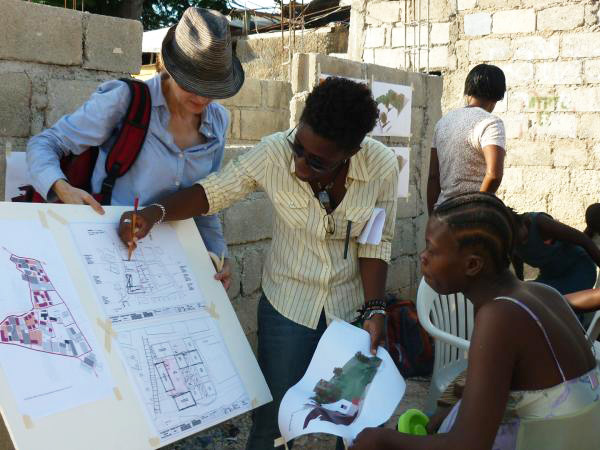How can we engage communities? To what extent should the project process be participatory? How do researchers negotiate with the hegemony of western cultural interpretations? How does the researcher journey from their studio to the situation?
These are just some of the questions addressed in the newly published Springer book M² Models and Methodologies for Community Engagement, edited by faculty member Reena Tiwari of Perth University and with contributions by our co-director Carmen Mendoza and professor Pere Vall. The publication discusses key theoretical constructs — community engagement, capacity building, and community empowerment — in order to demonstrate how theory and practice are relevant to the development of forms of community involvement.
The book maps the attributes of community-based projects by moving beyond simply bringing people together from a variety of disciplines, and taking an approach which is transdisciplinary and applicable across cultures and genres. Here, all people — including the community — are ongoing contributors, and can freely move between their own and others’ discipline-specific arenas.
M² differs from and extends on other works in this field of practice and research, in that its transdisciplinary, collaborative approach positions the community as a particular kind of discipline to create real change in diverse locations and fields of experience. The book is in itself a model of community engagement, as the researchers have formed a community of research and practice for change, and have developed a transformative model for community engagement that is greater than the sum of its parts – hence M².
A great resource for students and practioners alike. For more information about the book and the table of contents, click here.
Top photo via


